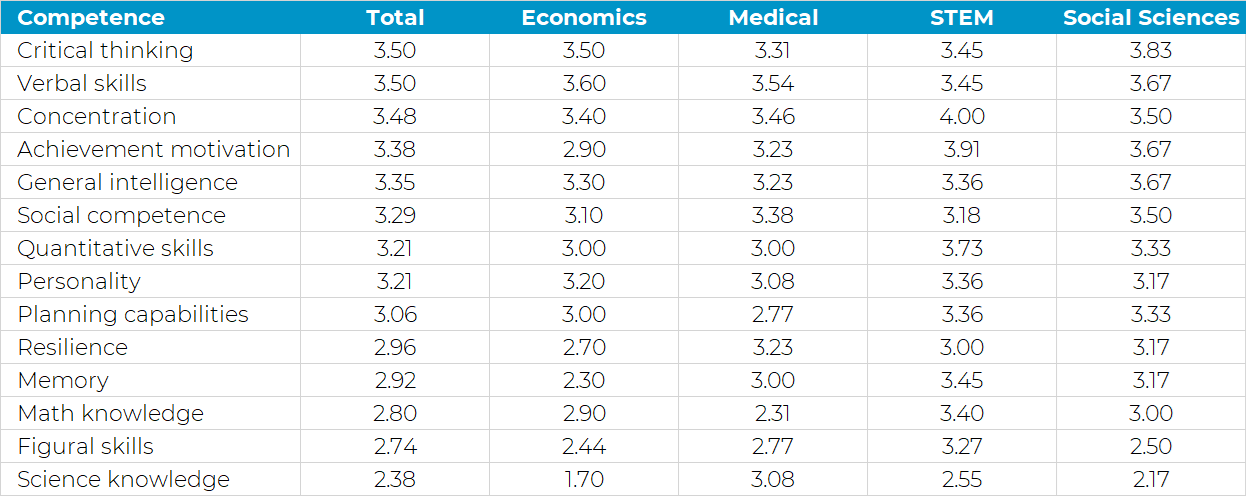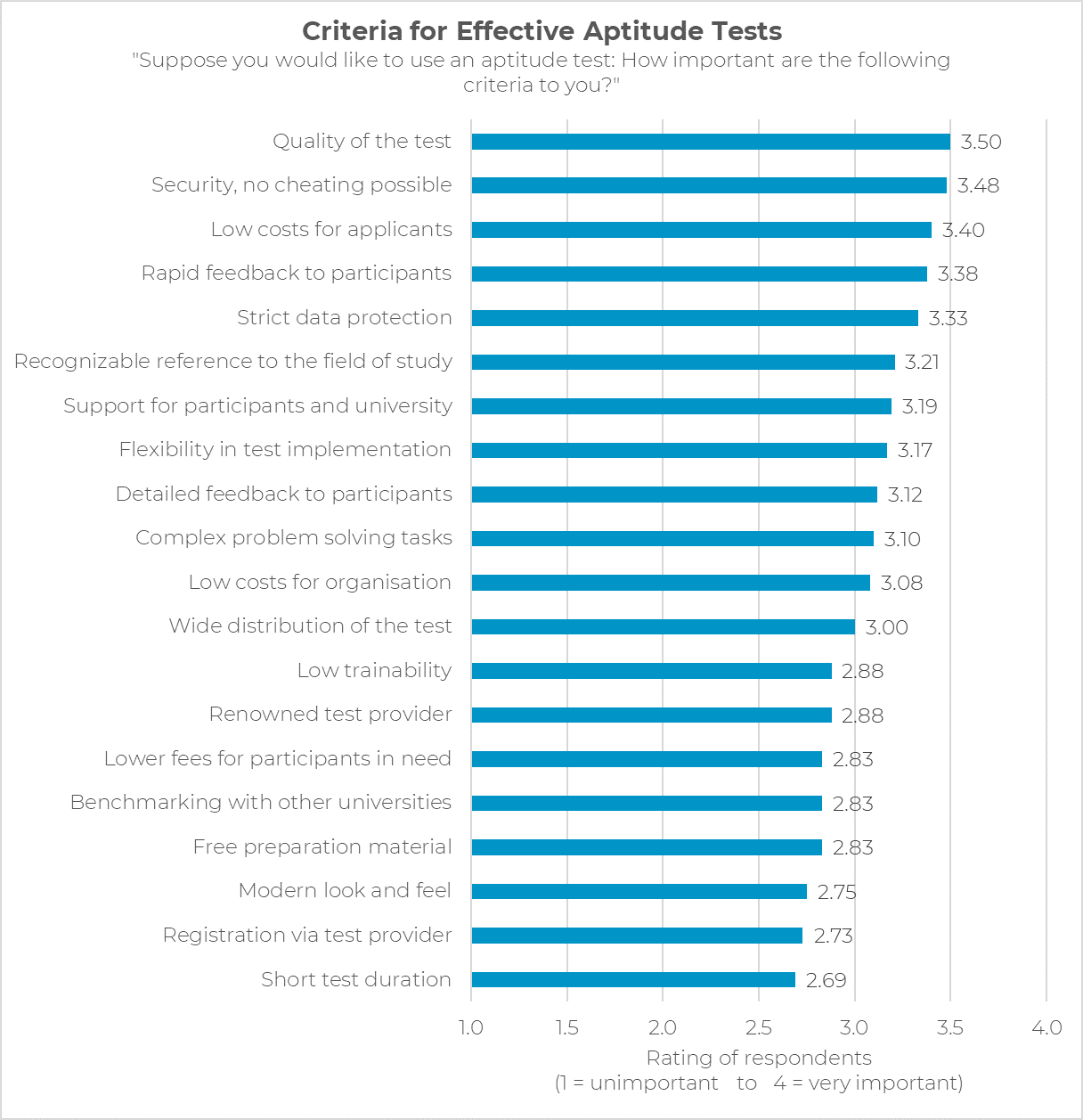As higher education institutions strive to identify the most suitable candidates, the choice and design of selection tools play a crucial role in the admissions process. Recent survey data from experts in higher education across 14 countries (Austria, Brazil, Canada, France, Germany, India, Mexico, Netherlands, South Africa, Spain, Switzerland, UAE, UK, USA) provides valuable insights into the preferred selection tools, key competencies for academic success, and important criteria for aptitude tests.
Preferred Selection Tools
Our survey revealed that institutions rely on a variety of instruments to assess applicants. The top five selection tools are:
- Grades/Certificates (81%)
- Interviews (81%)
- Admission tests from external providers (52%)
- Professional experience (38%)
- Institution-specific admission tests (37%)
Interestingly, motivation letters remain a favoured method for 31% of respondents, despite concerns about their predictive validity and vulnerability to AI-assisted composition. Due to advancements in AI and its increasing accessibility, the role of motivation letters is likely to diminish in the future.
The view of higher education experts generally aligns with the evaluations that students provide regarding acceptance of selection procedures. In a survey by Stegt et al. (2018), admission tests received the highest ratings, and interviews, professional experience, and motivation letters were also viewed positively. Differences emerge in the assessment of school grades: while students ranked school grades comparatively low in terms of acceptance, they were considered suitable for student selection by most higher education experts in our current survey.
Key Competencies for Academic Success
Our survey also explored the competencies deemed most important for academic success, rated on a scale from 1 (unimportant) to 4 (very important). The top competencies across all disciplines are critical thinking, verbal skills and concentration ability.

The results varied somewhat by field of study. For instance:
- Quantitative skills and mathematic knowledge are valued more critical for STEM fields (Science, Technology, Engineering, and Mathematics)
- Social competence is rated more important for Medical Studies and Social Sciences
- Scientific knowledge is seen key for Medical Studies but less relevant for Economics
Notably, critical thinking emerged as a universally important skill across all disciplines, aligning with its frequent appearance on “future skills” lists. It can be seen as a combination of cognitive abilities, motivation, attitude, and problem-solving techniques that facilitate logical thinking and unbiased decision-making.
Criteria for Effective Aptitude Tests
When selecting admission tests, institutions prioritise several key criteria. The top criteria identified in the survey focus on quality and security, supplemented by aspects of test taker experience and support:

Many of these criteria, such as test quality, security, rapid feedback, and implementation flexibility, are typically met by professional testing organisations. However, some areas present ongoing challenges:
- Cost: While undergraduate admission tests are generally affordable (under 100 USD/EUR/GBP), graduate test fees can vary significantly, with some US providers charging over 200 USD.
- Data protection: EU providers must adhere to strict regulations according to GDPR (General Data Protection Regulation), ensuring high privacy standards for test takers.
- Field-specific relevance and complex problem-solving: These criteria highlight the need for tailored, sophisticated assessment tools.
Interestingly, low trainability did not appear in the top ten criteria, despite its importance in promoting equality of opportunity by minimising the advantage gained by test preparation.
Implications for Admissions Practices
These findings suggest several key considerations for institutions in designing their admissions processes:
- Employ a diverse range of selection tools (e.g., grades, interviews, aptitude tests) to assess different aspects of applicant suitability
- Reconsider the use of motivation letters in light of their limitations and potential biases
- Focus on assessing critical thinking and other (subject-specific) key competencies relevant to academic success
- Choose aptitude tests that balance quality, security, and cost-effectiveness
- Consider the role of field-specific assessments and complex problem-solving tasks in selection processes
By carefully selecting and implementing diagnostic instruments that align with these insights, institutions can enhance the effectiveness and fairness of their admissions processes, ultimately contributing to institutional goals and student success.
Cited literature
Stegt, S. J., Didi, H.-J., Zimmerhofer, A., & Seegers, P. K. (2018). Akzeptanz von Auswahlverfahren zur Studienplatzvergabe. Zeitschrift für Hochschulentwicklung, 13(4), 15-35.



